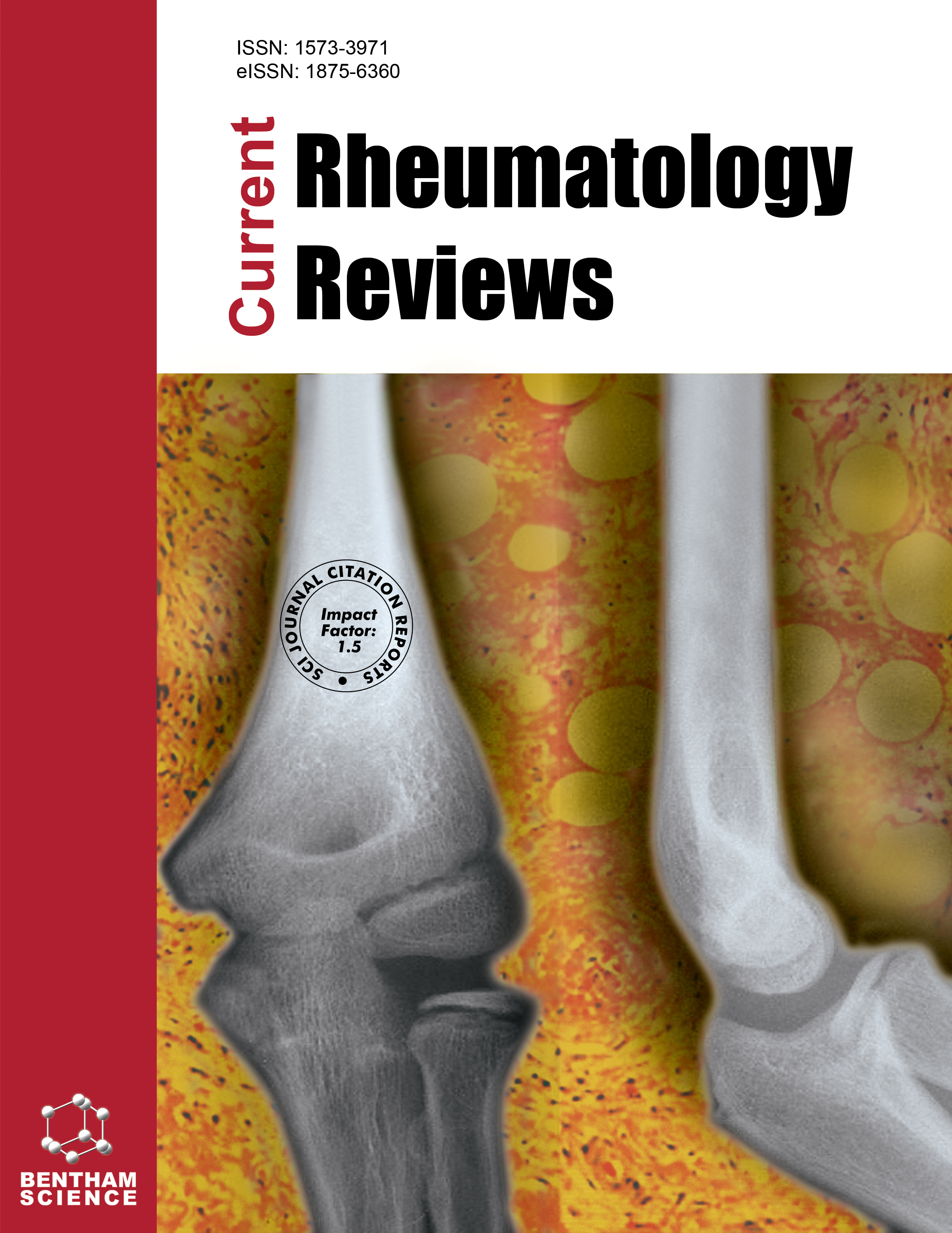-
oa Editorial [Hot topic: Nutritional Elements: Could they Play a Role in the Treatment of Arthritis? (Guest Editor: Kayo Masuko)]
- Source: Current Rheumatology Reviews, Volume 5, Issue 4, Nov 2009, p. 212 - 213
-
- 01 Nov 2009
Abstract
Many studies have suggested that metabolic or nutritional factors such as lipids [1, 2], vitamins [3, 4], and glucose [5] may contribute to the pathogenesis of arthritic diseases; however, this is a controversial topic [6-9]. The current “hot topic” of Current Rheumatology Reviews has been selected with the intent of providing readers with a recent overview of the topics pertaining to the implications of nutritional factors in arthritis and to evoke active discussion about the basic and clinical implications of the daily diet in the arthritic condition. In particular, studies have suggested that fatty acids (reviewed by Calder); amino acids (Yoneda et al.); green tea-derived polyphenols (Ahmed); and hydrocarbons in cigarettes, grilled meats, and industrial by-products (Uno et al.) may modulate the immune or inflammatory status. The Mediterranean diet may be beneficial in reducing arthritic symptoms (Oliviero et al.), and dietary supplements, often used by patients to correct a potential nutritional imbalance, may also play a role in this process (Ikuyama et al.). These phenomena, at least in part, may be due to the effect of adipokines (Gabay et al.), and nutritional elements may directly modulate genetic or molecular expression by activating nuclear receptors (Murata et al.). It should be noted that the clinical significance of these nutritional interventions has not been corroborated with sufficient evidence, and established anti-rheumatic or anti-inflammatory therapies that use disease-modifying anti-rheumatic drugs (DMARDs) or biologics (e.g., anti-tumour necrosis factor [TNF] agents) are still the first-line therapies. For example, the ingestion of dietary supplements is not a substitute for a prescription of methotrexate. Nevertheless, dietary or nutritional elements are also taken daily (usually t.i.d., and probably easier to remember than taking synthetic drugs); therefore, it is necessary to determine the manner in which these elements adjust the body homeostasis and anabolism in conjunction with the other administered drugs. Rheumatologists, other medical professionals, and patients themselves should be aware of the substances that are ingested by a patient, and regulating the fine nutritional milieu that surrounds inflamed joints may provide another (not always apparent but important) beneficial effect to the overall outcome. Thus, nutrition, a classic factor, may be developed as the latest basic support for antiarthritic therapy.


